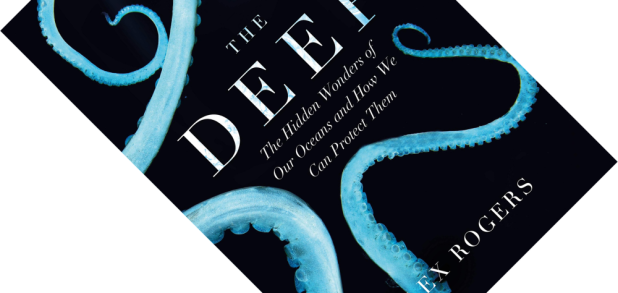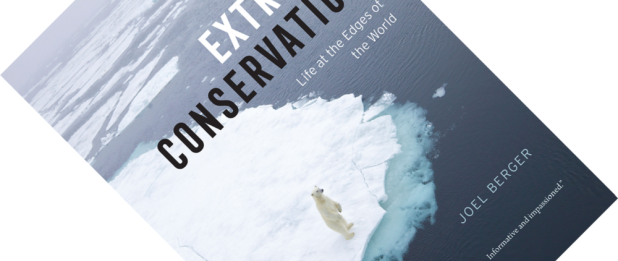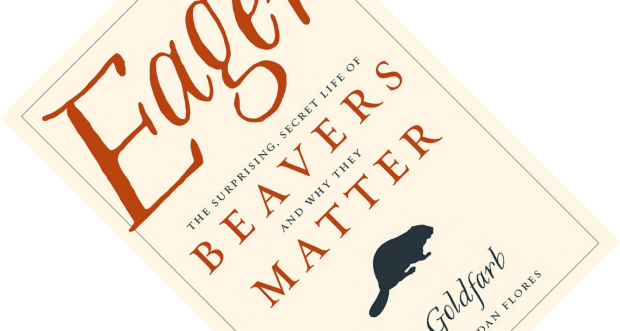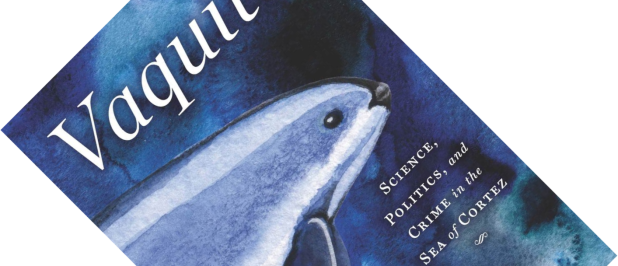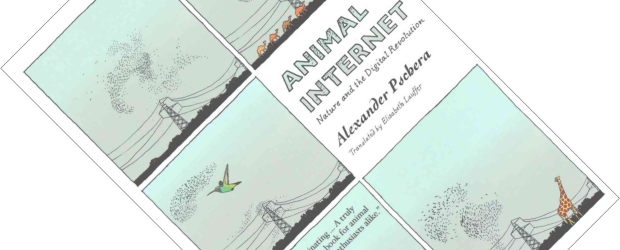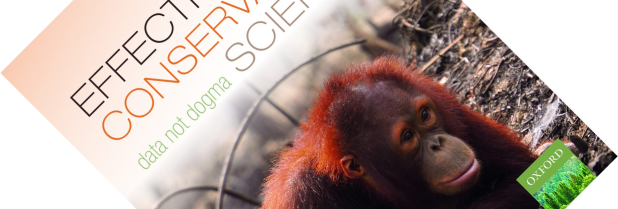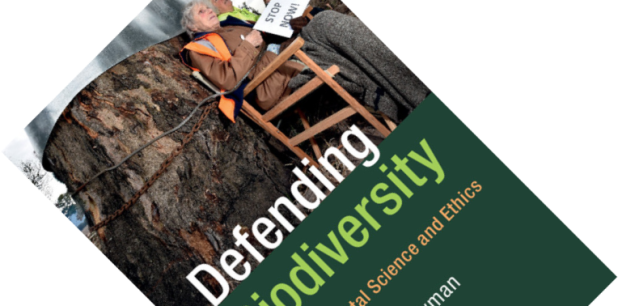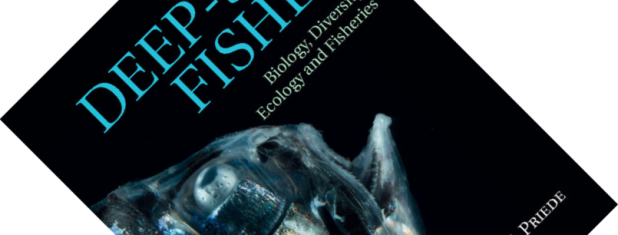What does the deep ocean make you think of? An alien world right on our doorstep? The cradle of life? A global garbage dump? The lungs of the planet? Or the world’s most abused ecosystem? If I am to believe marine biologist Alex Rogers, the deep ocean is all of the above, and so much more. With three decades of research experience and scientific consultancy credits for the BBC series Blue Planet II under his belt, he knows what he is talking about and he knows how to talk about it. The Deep is an intensely captivating and urgent book that swings between wonder and horror.
conservation biology
Book review – Curators: Behind the Scenes of Natural History Museums
One fond memory I have of studying biology at Leiden University in the Netherlands was a behind-the-scenes tour for first-year students at the then brand new location of Naturalis Biodiversity Center. This included a tour of the main tower housing the scientific collection normally off-limits to the general public. This is the domain of the museum curator, but their work involves much more than spending time amidst storage cabinets. To get a good idea just how diverse this job is, look no further than this lively and beautifully presented memoir. Here, Lance Grande tells of his career of more than thirty years as a curator at the Field Museum in Chicago.
Book review – Extreme Conservation: Life at the Edges of the World
Wildlife conservation and field biology are not for the faint of heart. Studying wild animals in their natural habitat brings with it long periods away from home, lack of comfort, and many logistical challenges. It calls for a certain kind of grit. But equally, it requires a persistent mindset to fight the cause of wildlife when conservation clashes with company’s bottom lines, political aspirations, and the wants and needs of an expanding world population. Even amongst this hardened bunch, few people would voluntarily venture into icy wastelands to study the animals existing at the edge of the world. Joel Berger is one of them and Extreme Conservation is his story, equal parts adventure narrative as it is a meditation on the value of wild nature.
Book review – Eager: The Surprising, Secret Life of Beavers and Why They Matter
When you think beavers, you think dams creating a safe microcosm in which they can thrive. But the effect of such dams ripples out well beyond that. In Eager, environmental journalist Ben Goldfarb presents a serious, incisive book that shows just how important beavers and their dams are for biodiversity, ecosystem health, and hydrology. If humans are now said to be a geological force to be reckoned with, birthing the term Anthropocene, our persecution of beavers led to the loss of another geological force.
Book review – Vaquita: Science, Politics, and Crime in the Sea of Cortez
If I asked you to name the most endangered cetacean species, I doubt the vaquita would come to mind. You might mention the baiji, the dolphin living in China’s Yangtze river, but alas, no living members of this species have been seen for years, despite intense search efforts, and the species is presumed extinct. Unfortunately, the vaquita seems to be next in line. Biologist Brooke Bessesen here tells its sad story, revealing the complex world of species conservation.
Book review – Animal Internet: Nature and the Digital Revolution
This book is translated from the German Das Internet der Tiere, published in 2014. I started reading it thinking it would mostly deal with what the latest developments in animal telemetry are telling us about conservation, and what we can learn moving forward. With advances in technology, GPS units and tracking devices are now becoming so small that we can even attach them to insects. Scientists are uncovering a wealth of data about bird migrations, whale feeding patterns and many other behaviours that are normally unobservable to us. Instead, this book provides a philosophical blueprint for how technological advances could bring about a new way for humans to reconnect to animals.
Book review – Buzz: The Nature and Necessity of Bees
Sure, I have been lectured about the birds and the bees, and yet I learned an awful lot more about the bees from Thor Hanson’s latest work Buzz: The Nature and Necessity of Bees. Hanson has previously written popular works about feathers and seeds, and in Buzz he turns his attention to bees. Already this book has garnered a lot of positive press and was Book of the Week on BBC Radio 4. Most people associate bees with honey and therefore with the honeybee, Apis mellifera, but Hanson specifically wants to talk about all the other thousands of bee species, many of which are as interesting and as important, even though some of them are diminutive and hardly noticed.
Book review – Effective Conservation Science: Data Not Dogma
Following hot on the heels of Cambridge’s Defending Biodiversity: Environmental Science and Ethics, Oxford University Press has just published the edited collection Effective Conservation Science: Data Not Dogma. Whereas the former title was careful about courting controversy, a quick scan of the chapter titles of this book suggest it is seeking out hot-button issues sure to upset some people (“Uncomfortable questions and inconvenient data in conservation science”, “Introduced species are not always the enemy of conservation”, or “Rehabilitating sea otters: feeling good versus being effective”). Together, these two books form an excellent combination of a philosophical and pragmatic examination of biodiversity conservation, and how we could do better.
Perhaps more than any other discipline, conservation science arouses strong feelings of righteousness, of fighting the good cause. Critical questions or results that run counter to the narrative of nature-in-decline are unwelcome, often out of fear that policymakers and the media will misinterpret such findings, leading to drastic reduction in support for conservation efforts. Though understandable, Effective Conservation Science is a collection of 26 cautionary tales of the dangers of such thinking.
Book review – Defending Biodiversity: Environmental Science and Ethics
Most people would agree that it is important to conserve wildlife and the environment it lives in. But can you clearly articulate why? Defending Biodiversity brings together an ecologist and two philosophers to critically examine the arguments environmentalists often put forward in favour of biodiversity conservation. Because, as they point out, a lot of these arguments are not very strong, and sometimes conflict with each other, or with other parts of what environmentalists wish to achieve. Now, before you get all worked up, all three authors strongly believe that biodiversity ought to be conserved, and this book is not an attack on environmentalists or biodiversity conservation. They are careful to avoid being unnecessarily controversial with this book. Rather, they want to help environmentalists improve and strengthen their arguments and to become more persuasive in debates.
Book review – Deep-Sea Fishes: Biology, Diversity, Ecology and Fisheries
It has become cliché to say that we know more about the surface of Mars than we do about the depths of our oceans, inaccessible as they are to us landlubbers. Nevertheless, technological advances have allowed us to discover more and more about the denizens of the deep. Anyone who has watched Blue Planet II or similar recent documentaries can testify to the bizarre and wonderful life forms that can be found there.

